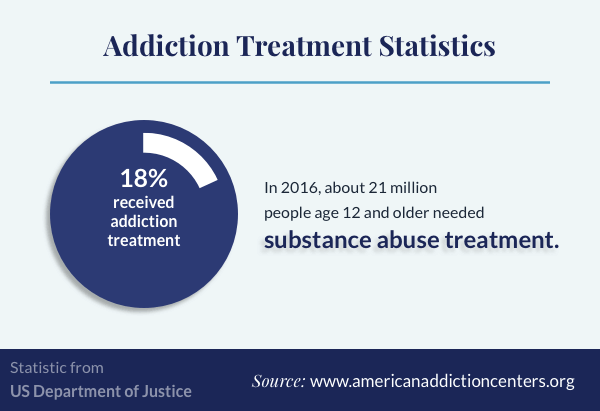Even when the urges diminish and the client has actually effectively resisted the temptation to relapse, additional cravings regularly follow within days or hours. For clients whose desire to utilize substances fades gradually, the threat of relapse stays high as long as other problems remain salient but the client has couple of or inadequately developed coping abilities aside from escape through compound use.
This section will describe ways of developing these interventions into strategies for preventing customer regression. Focus is put not just on the impact of relapse on the customer's recovery procedure, but likewise on the therapist and the interpersonal treatment process. By acknowledging in advance that regression can occur, a therapist presents the client with a sensible picture of the healing process.
The therapist offers viable hope of progress and ultimate success through the treatment cooperation, however likewise informs the client that some disappointments, obstacles, and perhaps episodes of relapse are inescapable along the method. The therapist lets the customer understand that anticipating these possibilities will permit the client to be better prepared to deal with them if they happen.
The therapist ensures the customer that if regression happens to happen, it can be utilized in therapy as a chance to get more information about personal strengths, restrictions, and requires. To take full advantage of customer involvement, the therapist requires to take steps beyond just stating this acknowledgment to the customer. The therapist ought to further inquire about the client's reaction to the viewpoint on relapse just explained. which of the following has been examined as a possible treatment for smoking addiction.
3 Simple Techniques For Which Of The Following Is Not Of Proven Effectiveness In The Treatment Of Narcotic Addiction?
Note the significance of the therapist likewise accepting the probability of customer regression. The helping occupations are rife with unreasonable belief that therapy for disordered compound use is mainly ineffective due to the fact that such customers can not or do not want to alter. Some other specialists who reject this cynical outlook and think that regression does not equal failure of treatment still might experience their own sensations of disillusionment when a client catches temptations to fall back into old behaviors.
Guidance can help more recent or having a hard time therapists in working through their own resistances and in working successfully with the tough dynamic of client relapse. By encouraging the customer to report relapse events or other factors to consider of acting counter to treatment objectives, the stage can be set for utilizing treatment sessions to promote gaining from problems in addition to from successes.

Once the possibility of relapse is admitted and an arrangement to analyze any relapse episodes is in place, the therapist stays attentive for emerging requirements to attend to negative ideas and feelings about regression as they occur. The customer's viewpoint. From the client's viewpoint, anticipatory sensations vary from excessive worries to big-headed overconfidence about abilities to resist regression (what is holistic treatment for drug addiction).
Relating to a regression that has already happened, clients may feel anything from extreme guilt and shame to relief or resignation related to resuming compound usage. While some customers openly acknowledge a regression, other customers who have concurred beforehand to report a relapse still hesitate to confide about an occurrence once it has in fact happened.
The 8-Second Trick For What Ar Esome Treatment For Exercise Addiction
Being cautious not to assume a regression has in reality happened, the therapist can see aloud the distinction in the client's presentation and express curiosity, inviting the customer to elaborate on its meaning. The therapist who frequently checks in with the client to inquire about any substance usage since the last treatment session supplies a context in which a client who hesitates to raise the topic can be triggered to share info.

As the therapist checks out customer material that appears unclear, incredibly elusive, https://www.evernote.com/shard/s410/sh/e15e6132-08e2-ab42-9aac-7bf3cabd52cd/14949858878cb567f58dd2ea314a1659 abnormally emotion-laden or puzzling, it is essential to remember that pressing clients to admit relapses they have not yet acknowledged rarely helps. Using open questions that prevent presumptive phrasing is most likely to elicit appropriate content from the client. When a client reports a relapse, either by self initiation or in action to the therapist's expedition, the therapist initially offers assistance by restating unconditional acceptance of the client together with curiosity about what can be gained from the incident.
Empathic listening will help the therapist preserve connection at such tough times, and likewise assist evaluate how the customer is in fact responding to the regression. Relapse prevention preparation continues from this point to integrate analysis of the regression experience and to apply findings toward treatment objectives. Analysis of the lessons gained from a regression is most useful when the therapist can get a precise reading of the client's emotional state following regression.
A shame-ridden client can be reminded that while his feelings are reasonable uncomfortable, it is necessary not to forget progress he has already made, as well as the remaining capacity for additional progress. The client wrapped up in anger that she troubled to try therapy when Visit this page this relapse shows she was just setting herself up for yet another failure can be prodded to remember factors for looking for and attending treatment prior to this regression (peer-review articles on how to create personal model for addiction treatment).
Some Of What Is The Most Common Form Of Medical Treatment For Opioid Addiction
In each case, the therapist will most likely recommend an evaluation of the treatment strategy, especially the provisions for relapse prevention - what is the treatment for drug addiction. The therapist even more determines with the client whether some modification of the plan is needed based on incoming Drug Rehab Center details. The therapist's point of view. In addition to helping the customer address feelings about a relapse and its influence on treatment motivations, therapists likewise experience their own strong affect at points of customer regression.